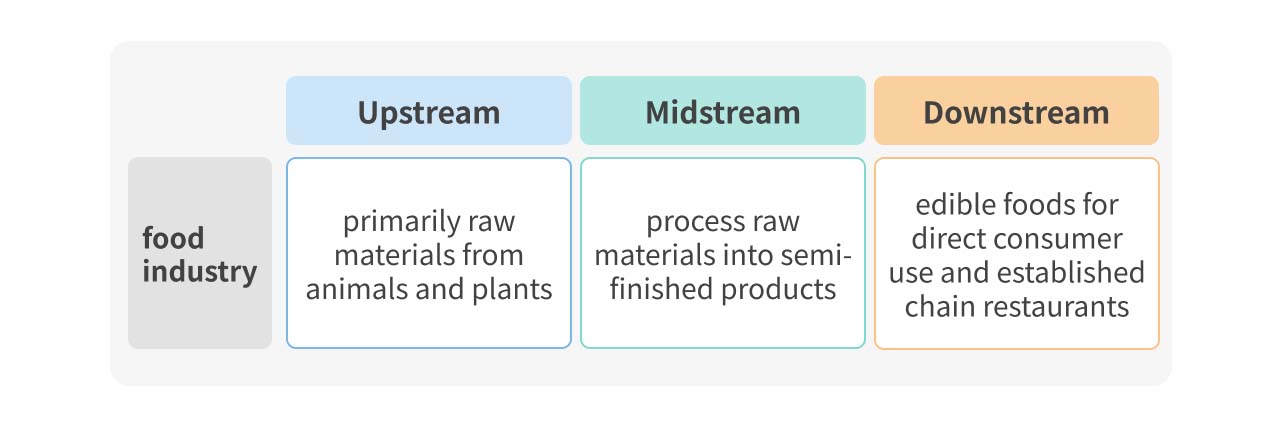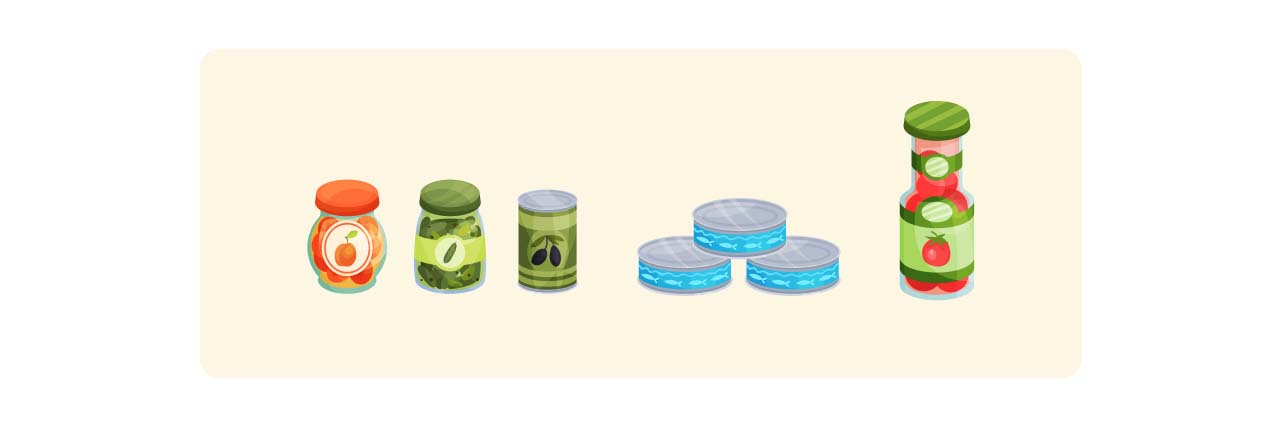Food is fundamental to life, and the food industry has long been a key development sector in many countries. Broadly speaking, the food industry covers everything from primary industries such as agriculture, forestry, fishing, and animal husbandry, to food processing, and even the food service industry, which serves consumers daily. Below we will be introducing Taiwan’s food industry across upstream, midstream, to downstream and the companies involved.

Food Industry Upstream: Food Raw Materials

The upstream sector of the food industry primarily consists of raw materials from animal, plant, and seafood sources, such as barley, wheat, coffee, cocoa, corn, soybeans, beef, lamb, pork, and poultry. Since most raw materials are derived from animals and plants, they are susceptible to climate changes. Additionally, geopolitical risks or shipping conditions can also affect food supply and lead to price fluctuations.
In Taiwan, due to limited resources, key raw materials like soybeans, corn, wheat, and meat (especially beef) are largely dependent on imports. As a result, domestic prices for these products can fluctuate based on global conditions, production levels, and the efficiency of transportation. Taiwanese companies involved in food raw materials include Great Wall (1210), Charoen Pokphand (1215), Formosa Oilseed (1225), Tai Roun (1220).
Food Industry Midstream: Food Processing Industry

The midstream sector focuses on processing raw materials into semi-finished products, often referred to as processed foods due to the inclusion of additives. Processed foods include items such as tofu made from soybeans, frozen meat products, and syrups. With rising awareness of health, food safety, and environmental sustainability, not only have government regulations on additives tightened (e.g., beverages containing caffeine must declare the caffeine content), but consumers’ demand for organic and sustainable products has also driven manufacturers to adopt green technologies, reduce pollution, and extend the shelf life of food. The development of processed foods now emphasizes preserving the natural color, flavor, texture, and nutrients of food to enhance its value. Companies in this sector include Great Wall (1210), Taisun Enterprise (1218), Sunjuice (1256).
Food Industry Downstream: Edible Foods and Food Service

The downstream sector of the food industry encompasses two major categories: edible foods for direct consumer use and established chain restaurants. The former includes frozen foods, canned goods, dehydrated foods, pickled foods, dairy products, and nutritional supplements.
Edible Foods
With consumers becoming increasingly health-conscious and the aging population in Taiwan growing, the demand for nutritional supplements has risen steadily over the years. The changing lifestyle, coupled with a focus on health, has turned nutritional supplements into a key industry segment, with many leading brands constantly innovating. Popular nutritional supplements found in everyday life include products from Standard Foods (1227) and Greenyn (6846).
Food Service Industry
Following the end of pandemic-related restrictions, chain restaurants have been gradually recovering. Chain restaurants benefit from centralized kitchen control, bulk purchasing, and large-scale advertising promotions, giving them an operational advantage. Key players in this sector include Bafang Yunji (2753), Kanpai (1269), TTFB (2729), Wowprime (2727), Lebledor (7757). In the beverage segment, notable brands include Louisa Coffee (2758), bubble tea chain Ten Ren Tea (1233), Yummy Town-KY (2726), Chu Yu Hsiang (2760). Moreover, consumers can find a wide variety of food products such as fresh milk, coffee, tea, canned goods, and ready-to-eat meals on store shelves, produced by large manufacturers like Uni-President (1216),Wei Chuan (1201), AGV Products (1217).
